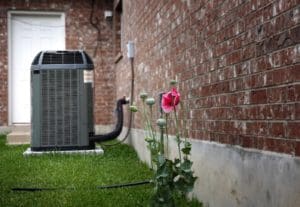

Should you leave your central air conditioner on while you’re away? Before you go on your next summer vacation, take a look at what you need to know.
Do You Want to Save Energy?
Constant air conditioner use costs you money. Every day the central system stays on increases your electricity bill. If you have concerns about excess energy usage while you’re away, consider:
- The cost of cooling. According to the U.S. Department of Energy, American homeowners spend a collective $11 billion annually on cooling costs. If you regularly have AC bills, days or weeks without use can save you money.
- Energy efficiency. Do you have a high-efficiency system? New air conditioners that are highly efficient reduce energy use by 20 to 50 percent, according to the Department of Energy. High-efficiency system owners may not see a significant difference if they shut the system down.
- The projected temperature. Your air conditioner won’t turn on if the weather is cool and comfortable. Projected lower temperatures may mean you can keep the system on while you’re on vacation.
- The thermostat setting. A seven to 10 degree change for at least eight hours a day can reduce your cooling bills by up to 10 percent, according to the Department of Energy. Some homeowners may choose to turn down (instead of shutting down) the system.
While energy and electricity savings are a top reason to turn a central air conditioner off, these issues aren’t the only reasons to stop cooling your home when you’re away. The type of system and thermostat you own can help to make the decision easier.
What Type of AC System and Thermostat Do You Own?
Some types of air conditioners and thermostats won’t require you to make a keep on versus turn off decision. You can leave the system on if:
- You just installed a new, high-quality system. Again, new high-efficiency systems use significantly less energy than older models. This allows you to leave the system on without unnecessary high electricity costs.
- You have a smart thermostat. This option makes it easy to change your thermostat setting remotely. You can check your home’s indoor air temperature from your smartphone and adjust it as needed while you’re away.
- You have a programmable thermostat. Even though you can’t change a non-smart programmable thermostat while you’re on vacation, you can set it to adjust for changing temperatures. This gives you less AC time and can lower the overall cooling costs.
Along with the central unit and the thermostat, a well-insulated house, high MERV (minimum efficiency reporting value) filter, and intact air ducts can reduce cooling costs while you’re on vacation. The lower combined costs the system, thermostat, filter, and ducts equal can help you to make this vacation-time decision.
Does Your Home Need Daily Cooling?
The air conditioner does more than improve your indoor comfort level. Even though you won’t need home cooling while you’re away, some parts of your home might. Before you decide to turn off the AC system during your vacation days or weeks, consider:
- The moisture level. Air conditioners do more than cool the interior air. These HVAC appliances also remove moisture and reduce humidity. If your home gets humid in the summertime, you may need to leave the air conditioner on or install a whole-home dehumidifier.
- Your flooring. Does your home have wood floors? The heat and humidity can warp your floors over time. If you plan to stay away for an extended time, the AC system can help to preserve the floors.
- Your furniture. Like flooring, wooden furniture (and some other types of materials) may require an air-conditioned indoor environment.
- Artwork. Paintings, photographs, and other types of art also need the lower heat and humidity of an air-conditioned interior.
The projected temperature and humidity level and number of days you’ll stay away factor into how the indoor environment will affect your home. Check the forecast and consider the length of your vacation before you decide to keep your system on.
Does your system need a pre-vacation AC checkup? Contact Steele Brothers Heating, Inc., for more information.
